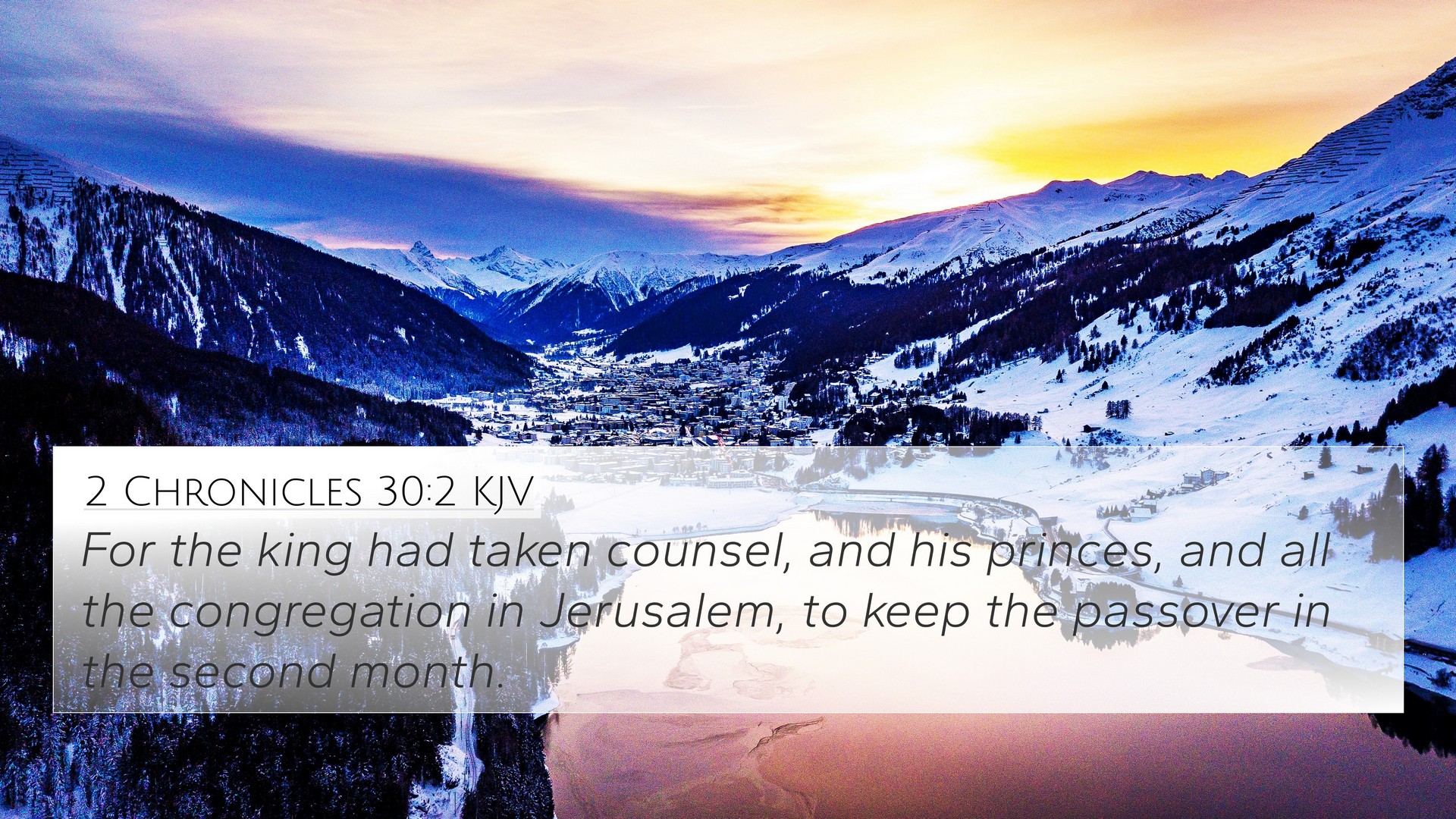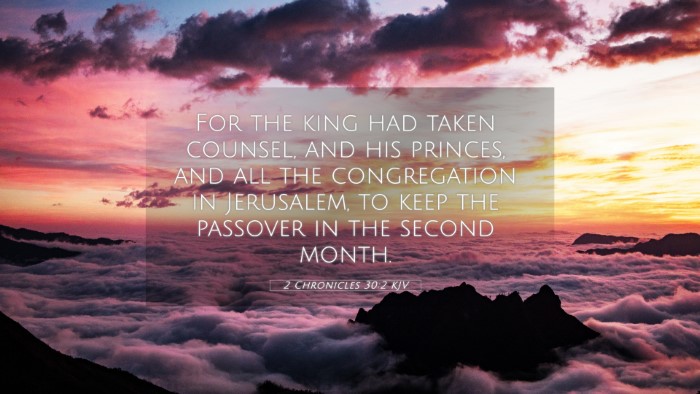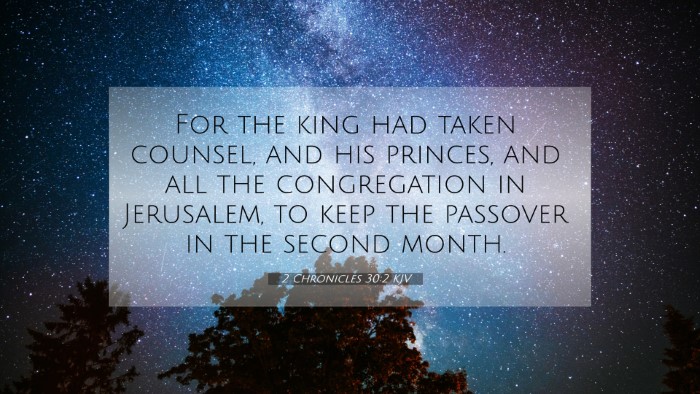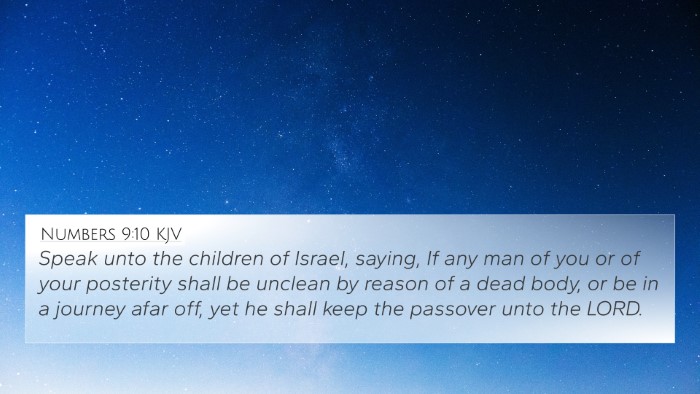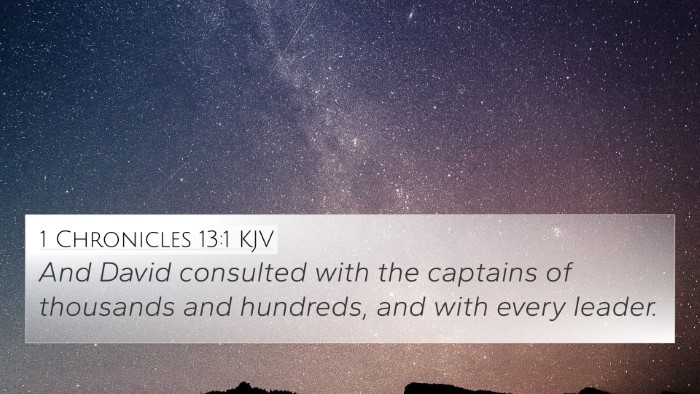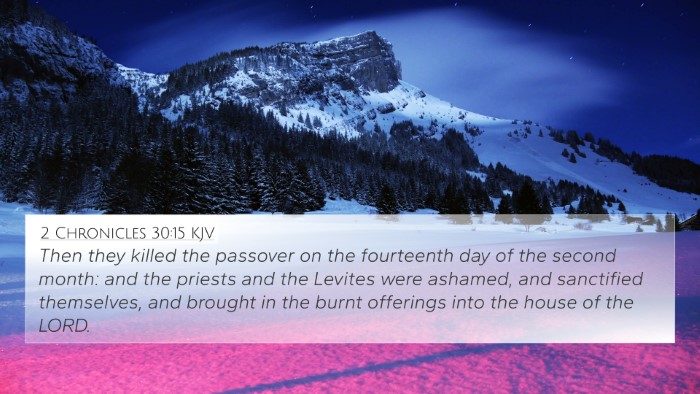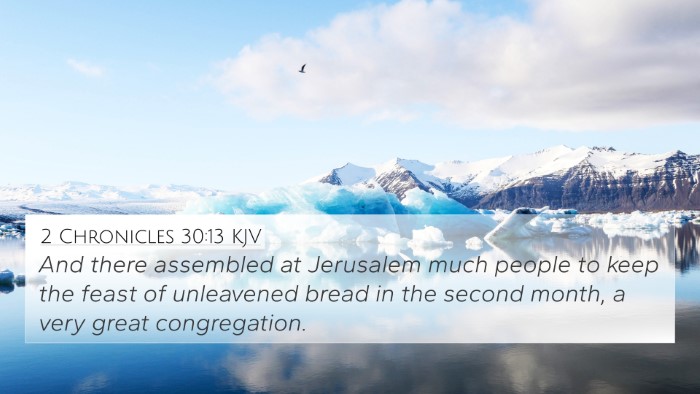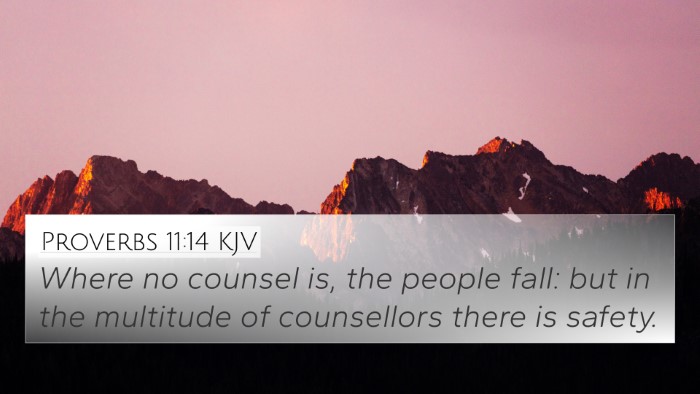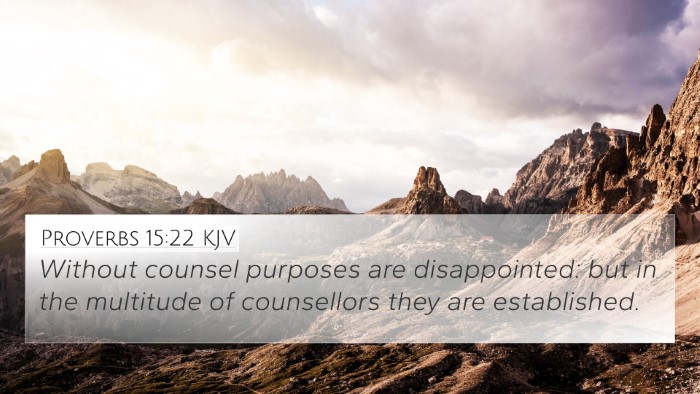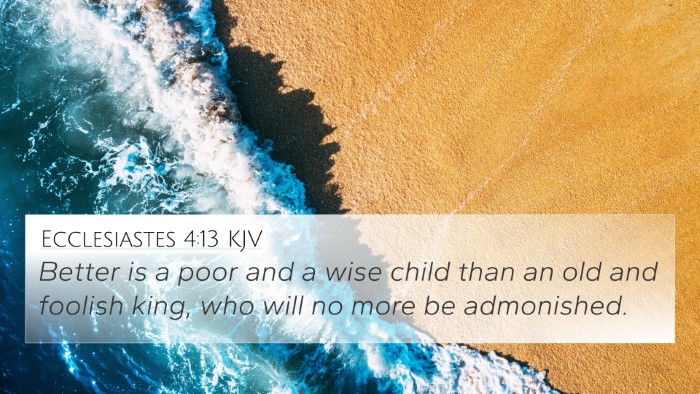Summary of 2 Chronicles 30:2
In 2 Chronicles 30:2, King Hezekiah of Judah initiates the call for a Passover celebration, emphasizing the importance of restoring worship and unity among the people. His desire to observe the Passover in a manner that is pleasing to God reflects the spiritual revival occurring during his reign, contrasting the neglect experienced under previous kings.
This verse serves as a focal point for understanding significant themes within the narrative of Judah's history, drawing attention to the themes of repentance, unity in worship, and the restoration of covenant relationship with God.
Insights from Public Domain Commentaries
-
Matthew Henry: highlights the foresight of Hezekiah, noting that he sought to keep the Passover in the second month as a means of ensuring that those who were not ceremonially clean still had the opportunity to participate. Henry elaborates on the significance of communal worship and encourages unity among the tribes of Israel.
-
Albert Barnes: draws attention to the fact that this was a time of restoration, illustrating that Hezekiah’s attempt to lead the people back to God amidst their spiritual decline marks a pivotal period. Barnes discusses the importance of collective worship and the king’s role as a spiritual leader who guides his people in adherence to covenant practices.
-
Adam Clarke: provides a deeper exploration of the implications of Hezekiah’s actions, stating that the call to observe the Passover points to God's mercy and willingness to restore His covenant people. Clarke emphasizes the historical context of this decision, marking it as a critical moment for the reformation of religious practices in Judah.
Thematic Connections
The verse not only sets the scene for a significant religious event but also resonates with
thematic Bible verse connections that encompass the entire narrative arc of the Old Testament, leading to reflections in the New Testament about Jesus as the ultimate Passover Lamb (1 Corinthians 5:7). Additionally, it signifies the restoration of true worship and the importance of remembrance in the faith journey, aligning closely with the themes present in Deuteronomy 16:1-2 and Exodus 12.
Cross-References
- Exodus 12:14: Establishing the Passover celebration as a lasting ordinance.
- 2 Kings 23:21-23: The commands of keeping the Passover by King Josiah following the Law.
- Isaiah 30:15: The call for repentance and returning to God, relevant to Hezekiah's reign.
- Psalm 51:17: God's desire for a broken and contrite heart highlights the true essence of worship.
- Matthew 26:17-19: Jesus setting the Last Supper in the context of Passover.
- Luke 22:14-16: Jesus references the Passover meal in relation to His sacrificial death.
- 1 Corinthians 5:7-8: Paul links the Passover to Christ as our Passover, urging believers to celebrate differently.
- Hebrews 10:1: The sacrifices of the Old Covenant pointing to Christ's ultimate sacrifice.
- Romans 12:1: An appeal for believers to present their bodies as living sacrifices, in a similar spirit to the Passover offerings.
- 2 Chronicles 30:12: Highlights the support and cooperation by the priests and Levites in this religious revival.
Conclusion
The narrative in 2 Chronicles 30:2 not only marks a restoration of worship in Judah but also invites readers to reflect on the broader implications of true worship, community, and the fulfillment of God’s promises. By utilizing various tools for Bible cross-referencing, one can uncover profound connections and gain deeper insight into Scripture.
